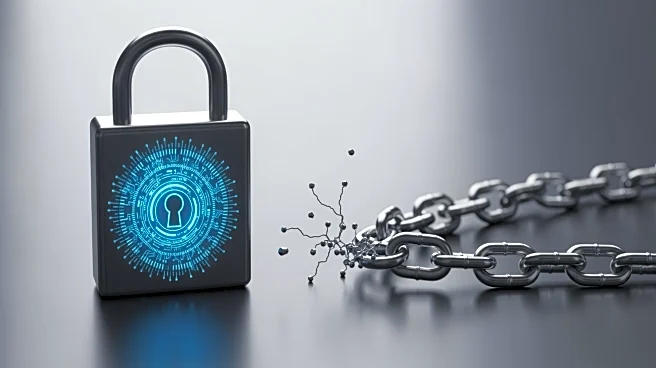What's Happening?
The U.S. Department of Defense is implementing the Cybersecurity Maturity Model Certification 2.0 (CMMC), requiring over 300,000 military contracting companies to enhance their cybersecurity measures.
Despite the importance of these safeguards, many contractors are reportedly unprepared for the new requirements set to begin on November 10. Whistleblowers within these companies have increasingly come forward, citing retaliation when they raise concerns about cybersecurity vulnerabilities. Major companies like Raytheon and Aerojet Rocketdyne have already settled cybersecurity fraud claims with the Department of Justice, highlighting the tension between compliance and corporate interests. The CMMC framework aims to protect sensitive national security data, but its success hinges on safeguarding the professionals responsible for its implementation.
Why It's Important?
The implementation of CMMC 2.0 is crucial for protecting America's defense industrial base from cyber threats. However, the reported retaliation against cybersecurity professionals poses a significant risk to national security. These professionals are essential in identifying vulnerabilities and advocating for necessary resources to achieve compliance. The reluctance of companies to invest in cybersecurity measures due to perceived costs could undermine the effectiveness of the CMMC framework. Legal protections exist for whistleblowers, but the chilling effect of retaliation could deter professionals from reporting non-compliance, potentially exposing sensitive data to bad actors.
What's Next?
As the November 10 deadline approaches, defense contractors must prioritize compliance with CMMC requirements to avoid legal liabilities and protect national security. Companies may need to reassess their approach to cybersecurity investments, recognizing them as strategic imperatives rather than regulatory burdens. The Department of Defense and other stakeholders will likely monitor compliance closely, and further legal actions may ensue if companies fail to meet the standards. The ongoing dialogue between cybersecurity professionals and corporate leaders will be critical in ensuring the successful implementation of the CMMC framework.
Beyond the Headlines
The broader implications of this development include potential shifts in corporate culture regarding cybersecurity. Companies may need to foster environments that encourage transparency and protect whistleblowers to maintain compliance and safeguard national security. The evolving legal landscape around whistleblower protections could also influence corporate policies and practices, leading to more robust cybersecurity measures across the defense industry.










